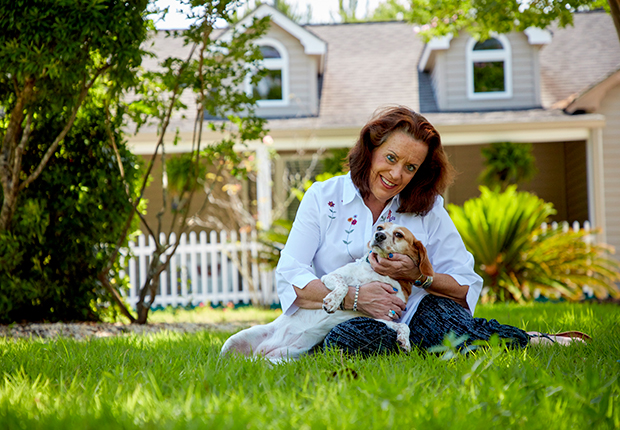AARP Hearing Center

By Holly Fisher
Steve and Doris Gleason bought a house in Pawleys Island, with plans to retire in five years. Then, at 52, Steve was diagnosed with stage 4 lung cancer. He had exercised, eaten well and never smoked.
“We never saw this coming,” Doris said. Suddenly all their plans were turned upside down. Ninety days after diagnosis, her husband of 25 years was gone. “We had one glorious summer at the beach,” Doris recalled.
Steve was a planner, so the couple had advance medical directives, allowing Doris to fulfill Steve’s wishes to live out his final days at home. They had discussed their funerals, and Doris knew Steve wanted to be cremated and have his ashes scattered over a creek in Pawleys Island.
“I knew all of that, which made it so much easier than trying to figure out what to do,” Doris said.
But many Americans have not made preparations. A 2013 survey by the Conversation Project, a campaign to encourage discussion of end-of-life care, found that 90 percent of people say talking with loved ones about such issues is important, but only 27 percent have actually done so.
Janet Porter, a member of the AARP board of directors and a former hospital administrator, is encouraging people to have these conversations—difficult as they may be. Subjects include whether they would want a feeding tube, how to care for pets, the kind of funeral they want and what to include in the obituary, she said.
Porter, of Hilton Head, recommends resources from the Conversation Project, which has free kits at theconversationproject.org, that make broaching the subject easier.
Where to get forms
The Carolinas Center for Hospice and End of Life Care has legal forms available on its website ( cchospice.org/resources/iitwt).
Marisette Hasan, vice president of South Carolina operations for the center, recommends filling out a health care power of attorney and designating a primary and secondary agent who can carry out your end-of-life wishes.
Then, give that form to family members and keep a copy in your home, she said.
It may soon be easier to have a digital copy of those forms. The Carolinas Center has received a $1.1 million grant from the Duke Endowment to develop an online platform that encourages users to “own their own health.”
Still in the early stages, the platform would allow people to identify and store health information, including advance directives, for free. The project is being managed by health care experts Catherine and David Sevier, working with partners around the Carolinas, including AARP South Carolina. They hope their efforts will reduce the resistance to end-of-life preparations.
Doris Gleason, now AARP state director for community outreach, has strong advice about the need to make plans.
“Do it sooner rather than later, because you never know how fast later comes. Even though you think you have years to go, you never know,” she said. “It’s not an easy conversation, but it’s easier than leaving a spouse or family member trying to figure out what to do.”
AARP South Carolina is hosting a tele-town hall on end-of-life issues at 10 a.m. Thursday, July 27. For more information, click here to register or call 866-389-5655 toll-free.
Holly Fisher is a writer living in Mt. Pleasant, S.C.































































